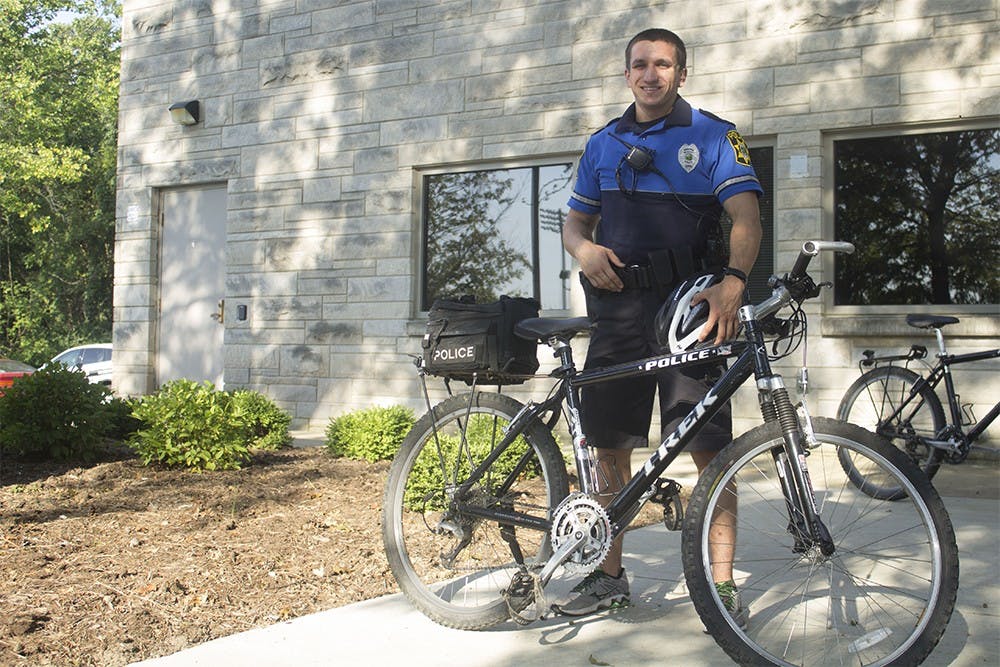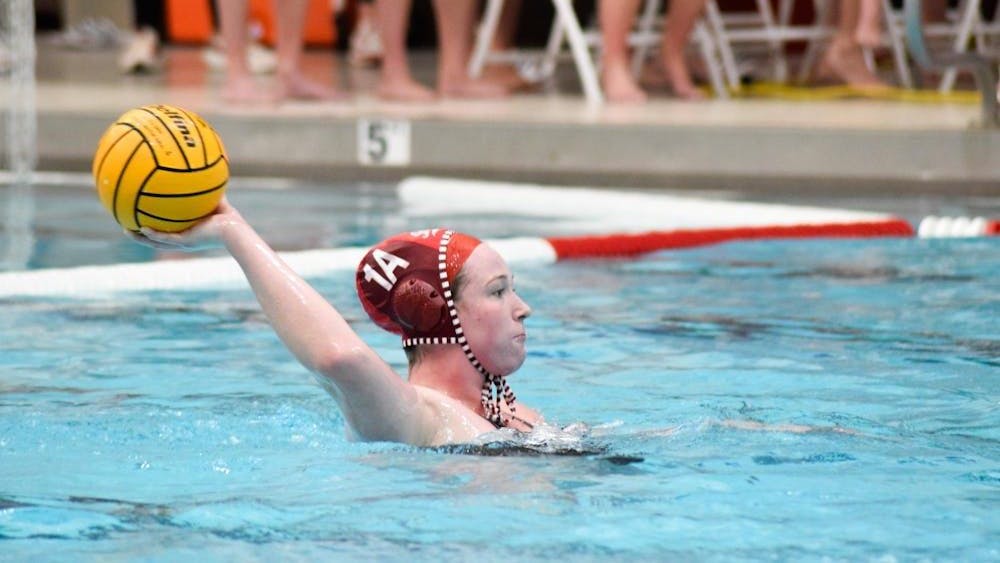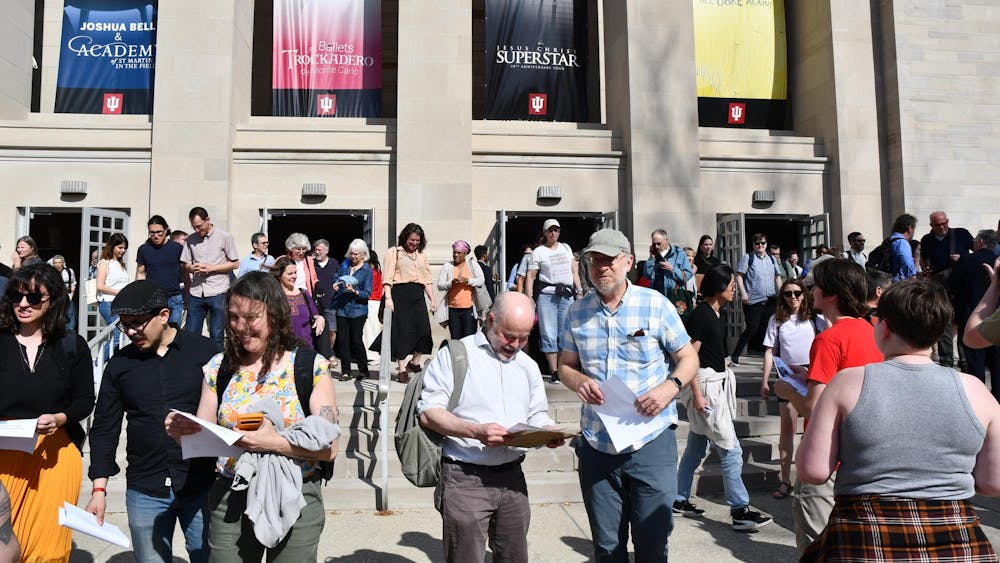According to Oliger, squad cars distance officers from the public and contribute to the breakdown of society’s trust in police departments, as evidenced in places like Ferguson, Missouri.
“When officers used to ride the bicycles — bicycles used to be big back in the early 1900s — or they’d do foot patrols, you’d be out amongst the people,” Oliger said. “You’d be door-to-door seeing these people every single day.”
Oliger said he has observed officers driving to answer calls at 50 miles per hour with windows rolled up and music playing.
“There’s no dialogue between the people they’re going past,” Oliger said.
That’s a major reason Oliger said the IUPD’s bike patrols benefit the department.
Taken from an English concept dating back to the 1860s, IUPD has run a successful bike patrol program since the early 1990s.
The department currently has about 20 bicycles and 29 full and part-time officers qualified for bike patrol duty. The department attempts to have some of these officers out everyday.
Oliger, a lifelong biker and former Little 500 competitor, said bike patrol has been “totally a game changer” in IUPD’s community-oriented policing.
“You get police officers out,” Oliger said. “They’re out in the open. They can just stop, dismount their bike, walk it right up the sidewalk and start talking to people.”
Other benefits of the bike program include saving money on gas, creating less pollution, and policing in areas regular squad cars could not ordinarily navigate, Oliger said. He also said one squad car costs the same as seven to 10 fully equipped bike patrols.
“Bicycles can go anywhere,” Oliger said. “We can take our bikes through buildings. We can go through the woods. We can go through fields. We can go up curbs, down curbs, down stairs. We can go anywhere with bikes, and, if we can’t ride it, we pick our bike up and carry it.”
The bike patrols also allow officers to bypass traffic congestion and cut through campus much more quickly than would be possible in a car, Oliger said.
The patrols are heavily used when dealing with large events on campus, such as football and basketball games.
Oliger said officers on bikes respond to any type of call, and, in a situation where a suspect may need to be apprehended, vehicle backup is typically on the way.
However, the bike patrols are not without danger. Deputy Chief Doug Johnson, who has more than 15 years of bike patrol experience, said bicyclists must learn how to keep an eye out for debris on the path ahead and share the road with other vehicles when drivers are often unaware of a bicyclist’s presence.
To teach these skills, among others, IUPD offers a 32-hour minimum bike patrol training course certified by the International Police Mountain Bike Association. Courses are offered one or two times a year based on interest and often occur during a three to five-day period.
Johnson and Oliger are two of IUPD’s three IPMBA-certified instructors for the course.
“It’s long and excruciating,” Oliger said about the 12-hour days involved in training.
Part-time student officer and IU senior Michael Smolen completed bike patrol training at the beginning of the semester. In his three-day course from Aug. 16 to Aug. 18, Smolen practiced on cone courses, rode on longer 13 to 15 mile rides and learned about bicycle safety.
“A lot of people think that the people on the bikes are dorky or nerds or whatever,” Smolen said “But these guys, along with myself, are some of the top-ranking people in our academy class.”
Smolen said he has also been able to observe how people’s view of officers change when they are encountered on bikes.
“People out walking around view officers in a different uniform as friendly and less intimidating and more likely to come up and talk to us,” Smolen said.
Carrying ticket books, flares, first aid kits and more on their black, heavy-duty Trek bicycles from Bloomington’s Bicycle Garage Inc., officers dress in blue nylon uniforms to distinguish themselves from officers in patrol cars.
Despite now mostly handling the administrative aspects of bike patrols, Johnson said he preferred riding the bike to patrolling in his squad car. He said it allows him to stay healthier by exercising on the job in addition to getting out among the people.
Johnson said being on bike patrol has allowed him to pursue suspects on bike and on foot in a way that vehicles could not.
“Of the 23 people that have chosen to flee from me,” Johnson said. “I’ve caught all 23 of them.”
Johnson said bike patrols allow officers to hear, see and smell things they wouldn’t from patrol cars, and he said he believed bike patrolling will continue to grow in popularity.
“Really about everyday that we’re on the bikes here, they’re proving their value,” Johnson said.






